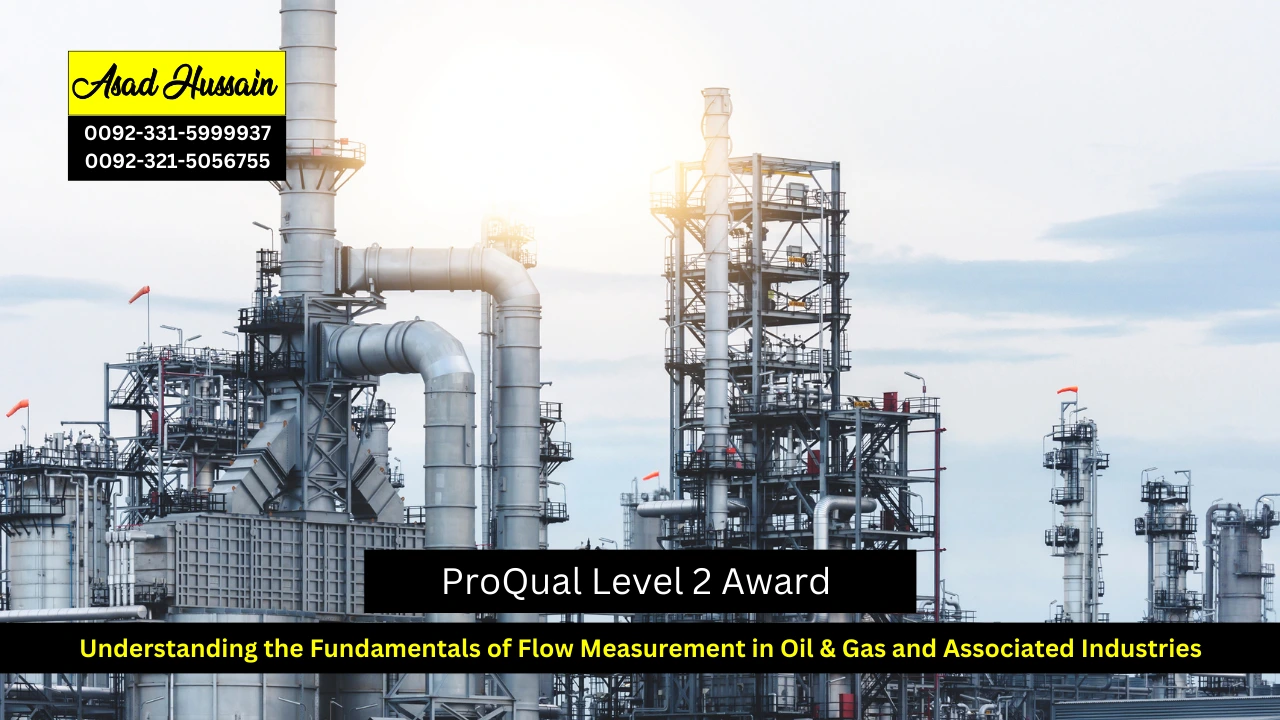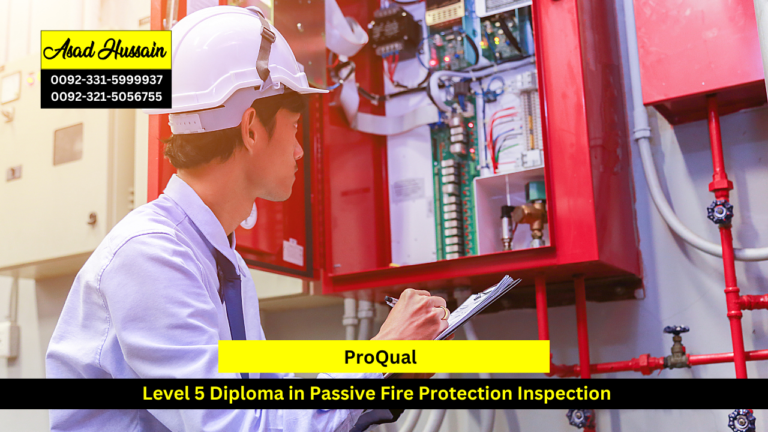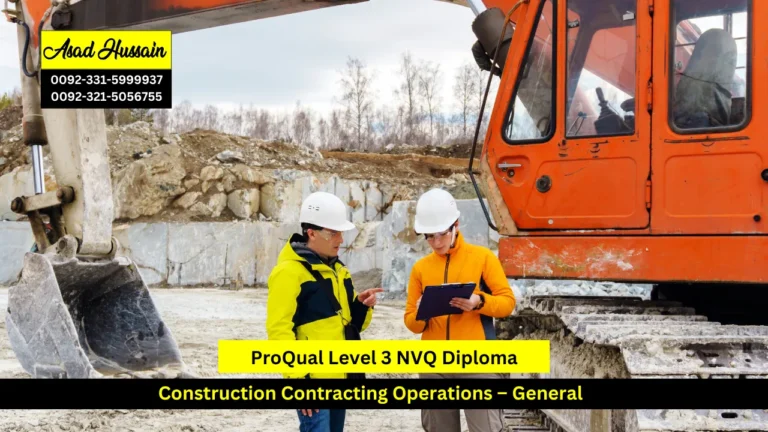The ProQual Level 2 Award in Understanding the Fundamentals of Flow Measurement in Oil & Gas and Associated Industries is an exciting and essential program designed to delve into the heart of one of the most critical aspects of the energy sector. In a world where the accurate measurement of fluid flows is paramount, this course is a game-changer.
This award equips participants with an in-depth understanding of flow measurement, making it a must for individuals looking to excel in the dynamic Oil & Gas industry. It doesn’t just scratch the surface but dives deep into the complexities of measuring fluid flow – a skill of immense significance in optimizing resource management and ensuring the highest standards of safety and efficiency.
What sets this program apart is its focus on real-world applications. It bridges the gap between theory and practical knowledge by immersing learners in scenarios specific to the Oil & Gas and associated industries. Participants will learn about the latest technologies and techniques, enabling them to tackle industry challenges with confidence.
Moreover, this Level 2 Award from ProQual opens doors to diverse career opportunities within the Oil & Gas sector. Whether you’re an aspiring engineer, technician, or industry professional, this certification is your ticket to unlocking exciting career prospects and advancement.
we are offering ProQual Qualifications in Association with ICTQual ( Inspire College of Technologies Uk).
Program Highlights
To achieve the ProQual Level 2 Award in Understanding the Fundamentals of Flow Measurement in Oil & Gas and Associated Industries : Candidates must complete the following single Mandatory unit of 50 Guided Learning Hour.
Mandatory units
Introduction to Well Control and Equipment for Oil and Gas
The entry requirements for the “ProQual Level 2 Award in Understanding the Fundamentals of Flow Measurement in Oil & Gas and Associated Industries” may vary depending on the institution or training provider offering the course. However, here is a typical set of entry requirements for such a qualification:
- Educational Background:
- A minimum of a secondary education qualification, such as a high school diploma, GED, or its international equivalent.
- English Language Proficiency:
- Proficiency in the English language is often required to ensure that candidates can understand and effectively participate in the course. Some institutions may require proof of English language proficiency through standardized tests like IELTS or TOEFL.
- Work Experience:
- While not always mandatory, having prior experience in the oil and gas industry or related fields may be beneficial for a better understanding of the course material. Some institutions may specify a minimum amount of relevant work experience.
- Prerequisites:
- Check if there are any prerequisite courses or qualifications required before enrolling in the Level 2 Award. There might be specific Level 1 certifications or foundational courses that candidates need to complete first.
- Age Requirements:
- Ensure that you meet any age requirements set by the training provider or awarding body. In some cases, there may be a minimum age for enrollment.
- Documentation:
- Be prepared to submit necessary documents, such as a completed application form, identification, and proof of educational qualifications.
- Interview or Assessment :
- Some institutions may conduct interviews or assessments to gauge your suitability for the course. Prepare for any interviews or assessments that may be part of the application process.
Join us on this path of transformative growth and take the first step towards becoming a strategic leader in health and safety. Your dedication and commitment can unlock a world of opportunities and impact.
The “ProQual Level 2 Award in Understanding the Fundamentals of Flow Measurement in Oil & Gas and Associated Industries” is designed to provide learners with a comprehensive understanding of flow measurement principles and their specific applications in the oil and gas industry. Upon successful completion of this qualification, learners will achieve the following learning outcomes:
- Knowledge of Flow Measurement Principles: Learners will demonstrate a solid understanding of the fundamental principles of flow measurement, including the concepts of volume flow, mass flow, velocity, and the units of measurement used in the industry.
- Types of Flow Measurement Devices: Learners will be able to identify and explain the various types of flow measurement devices commonly used in the oil and gas industry, such as orifice plates, venturi tubes, flow meters, and more, and understand the operating principles of each.
- Flow Measurement Instrumentation: Learners will gain knowledge of the instrumentation and equipment used in flow measurement, including sensors, transmitters, control systems, and data acquisition techniques.
- Regulatory and Safety Compliance: Learners will understand the importance of compliance with industry regulations, standards, and safety protocols related to flow measurement in the oil and gas sector.
- Flow Measurement Applications: Learners will be able to describe and analyze the practical applications of flow measurement in various aspects of the oil and gas industry, including production, transportation, and refining.
- Calibration and Accuracy: Learners will grasp the significance of calibration in maintaining the accuracy of flow measurement devices and be able to describe the calibration processes.
- Data Interpretation and Analysis: Learners will develop the skills to interpret flow measurement data, analyze trends, and troubleshoot issues related to flow measurement accuracy.
- Environmental and Economic Impact: Learners will gain an awareness of the environmental and economic implications of accurate flow measurement in the oil and gas industry, with a focus on minimizing waste and optimizing processes.
- Communication and Reporting: Learners will be capable of effectively communicating flow measurement data and reports to relevant stakeholders in a clear and concise manner.
- Problem Solving: Learners will develop problem-solving skills to address common challenges and errors in flow measurement, ensuring efficient and reliable operations in the oil and gas industry.
- Ethical and Professional Considerations: Learners will understand the ethical and professional responsibilities associated with flow measurement in the oil and gas sector, including confidentiality, integrity, and safety.
The “ProQual Level 2 Award in Understanding the Fundamentals of Flow Measurement in Oil & Gas and Associated Industries” is designed for a specific audience within the oil and gas sector and related industries. This course is intended for:
- Entry-Level Technicians: Individuals who are new to the field and seeking foundational knowledge in flow measurement in the oil and gas industry.
- Junior Operators: Those who work in operational roles within the oil and gas sector and need to understand the principles of flow measurement.
- Oil and Gas Industry Professionals: Employees in various roles within the industry who want to gain a comprehensive understanding of flow measurement to enhance their knowledge and performance.
- Maintenance and Inspection Personnel: Individuals responsible for maintaining and inspecting equipment related to flow measurement in the oil and gas sector.
- Supervisors and Managers: Those in leadership positions who require a deeper understanding of flow measurement to effectively manage and oversee projects and teams.
- Engineers and Technical Staff: Professionals involved in the design, implementation, and optimization of flow measurement systems in the oil and gas industry.
- Health, Safety, and Environmental (HSE) Personnel: Individuals tasked with ensuring compliance with safety and environmental regulations related to flow measurement processes.
- Quality Assurance and Control Personnel: Those responsible for maintaining quality standards and ensuring accuracy in flow measurement systems.
- Regulatory and Compliance Professionals: Individuals who need to stay informed about industry standards, regulations, and best practices in flow measurement.
- Those Seeking Career Advancement: Individuals who wish to advance their careers within the oil and gas sector by gaining a specialized understanding of flow measurement.
It is important to note that this course provides a fundamental understanding of flow measurement in the context of the oil and gas industry, making it suitable for both beginners and those looking to refresh or deepen their knowledge. The course content aims to equip participants with the necessary skills and knowledge to excel in their roles and contribute to the efficient and accurate measurement of flow in this critical industry







